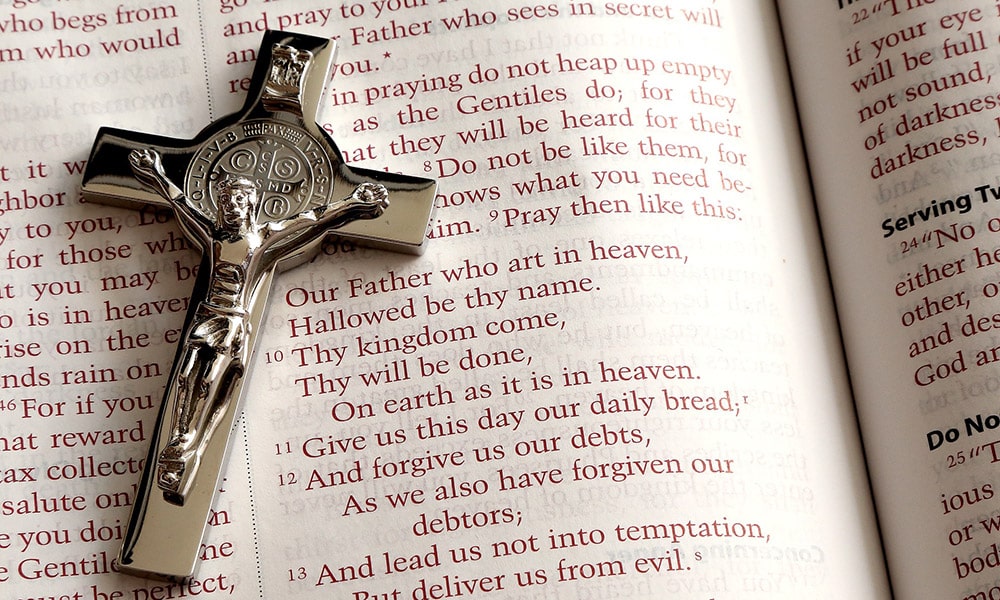
The Lord creates Adam from the dust of the ground, breathing life in him. Yet, Adam is lonely. God seeks to soothe Adam’s loneliness by allowing him to participate in the naming of creatures, “but none proved to be a helper suited to the man” (Gn 2:20). In all of creation, nothing could quell Adam’s loneliness.
So, the Lord God places Adam into a deep sleep, taking out one of his ribs. From the side of Adam, God creates Eve. In Genesis, only after the creation of Eve are the words “man” and “woman” used in Hebrew. Adam discovers himself in the crossing of gazes with Eve, his beloved, his wife.
As we know, Adam and Eve’s relationship is soon complicated by sin. Adam and Eve both eat from the fruit of the tree of knowledge of good and evil. But more importantly, both doubt the graciousness of God, believing that he is incapable of generosity, of merciful love.
| 27th Sunday in Ordinary Time – Oct. 7, 2018 |
|---|
|
GN 2:18-24
PS 128:1-2, 3, 4-5, 6
HEB 2:9-11
MK 10:2-16
|
And the result of this fractured communion is enmity. Adam, in Genesis, blames both God and his wife for this fractured communion: “The woman whom you put here with me — she gave me fruit from the tree, so I ate it” (Gn 3:12).
It’s your fault, God, that you ever created this woman. It’s this woman’s fault for giving me the fruit at all. It’s everyone’s fault but mine.
With the fall of Adam and Eve, there is now a fractured communion between man and woman. What was once unthinkable in the garden — divorce — is now a very real possibility. The communion of love is impermanent.
Jesus comes to heal this fractured communion. He is asked whether it is lawful to divorce one’s wife as found in the Law of Moses.
But there’s a problem. In Deuteronomy, the Law simply states that a husband may divorce his wife by writing a bill of divorce. The intention of such a bill of divorce was to allow the woman to remarry, and thus not die because of abject poverty if her husband left her.
The Law does not address the permissibility of divorce per se. The Law allows for the protection of one on the margin.
Jesus proclaims that this was allowed because of the hardness of heart of Israel, a phrase drawn from Israel’s recalcitrance in the desert. With the coming of Jesus, the original communion is to be established. Divorce is not possible because in marriage the original communion between man and woman is signified.
But how is this possible? How can a man and a woman stay together through thick and thin?
Jesus does not exhort the assembly to “suck it up” or learn to work hard at one’s marriage. Rather, he calls them to conversion: “‘Amen, I say to you, whoever does not accept the kingdom of God like a child will not enter it'” (Mk 10:15).
In order to restore the original communion of creation, man and woman must become like children. They must not rely on their own merits to stay married but adopt a childlike disposition, to receive all as gift.
Living up to the high standard of marriage in the kingdom of God is not a matter of pursuing a steeled virtue.
Instead, it requires a life of prayer, a posture of receptivity whereby man and woman receive infinite love from God.
One can only give, after all, what one has first received.
Timothy P. O’Malley, Ph.D., is managing director of the McGrath Institute for Church Life.





